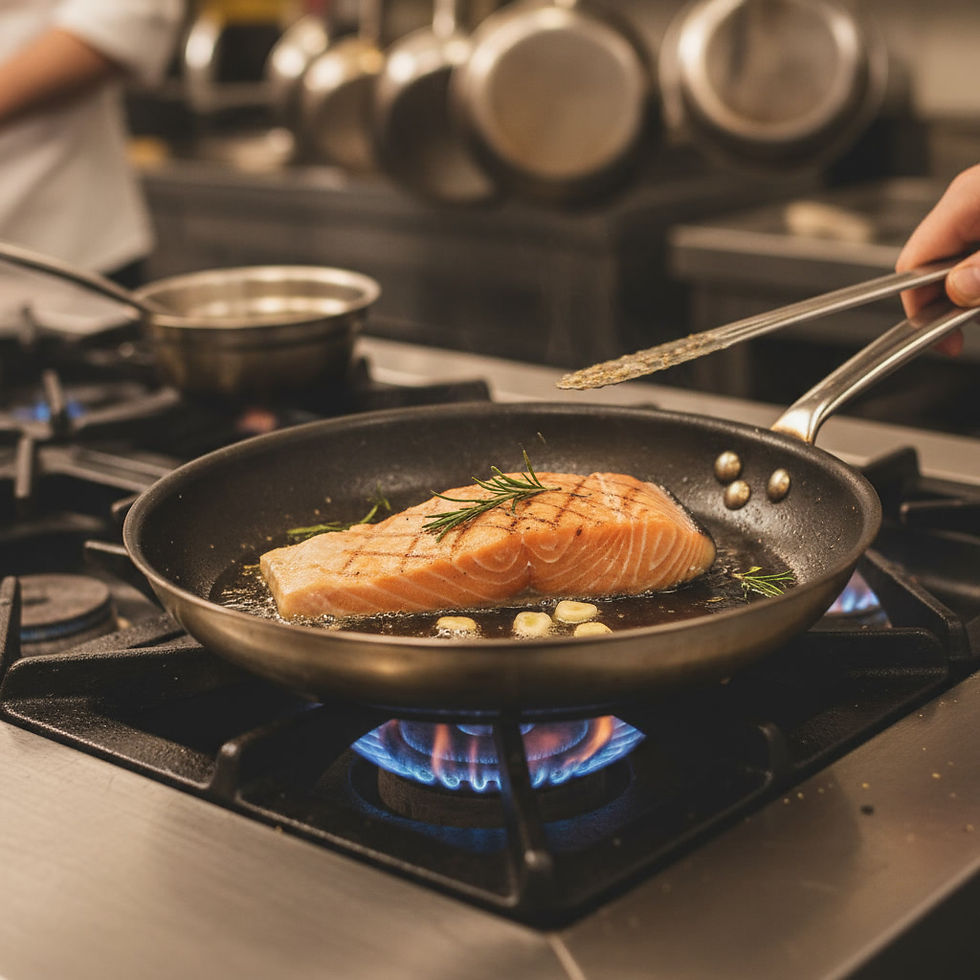Unpopular Opinion: Words That Should Be Banned From Every Restaurant Menu
- Nov 8, 2025
- 2 min read
A menu is not a document. It is a promise.
It is a restaurant's opening argument, a declaration of intent whispered to you before a single plate has landed.
And like any promise, it can be broken. More often than not, it is broken by language. It is murdered by a thousand tiny cuts of pretentious, insecure, and downright baffling words.
There is a whole lexicon of culinary word crimes, a glossary of gastronomic nonsense designed to obscure, not to illuminate. It is the language of marketing departments, of chefs who have watched one too many episodes of Iron Chef.
It is a linguistic fog that settles over a restaurant menu, promising everything and signifying nothing.
Let us begin with the most egregious offender: "deconstructed."

A "deconstructed" lemon tart is not a clever, post-modern triumph. It is a mess. It is a chef who has given up, who has decided that the noble art of actually making a tart is too time-consuming.
It is a plate of ingredients that have been introduced to each other at a party but have decided not to become close friends.
Then there is the plague of the unnecessary adjective. The 'artisanal' bread. 'Artisanal' is a word that has been so brutalized by social media managers that it has lost all meaning. It is now used to describe everything from a magnificent, slow-fermented sourdough to a factory-made loaf that has been dusted with a bit of flour to look rustic. It is the culinary equivalent of a fake tan.
And the 'freshly-squeezed' orange juice, a phrase that should be a given, not a boast. Its presence on a menu is an immediate red flag, an admission that some of the other juices on offer have likely been sitting in a carton since the dawn of time.
And perhaps the most disturbing of all: 'from scratch'. It’s an unwanted Americanism, a folksy, disingenuous phrase that is slowly, insidiously, creeping into Australian menus. Are we really supposed to be impressed that a restaurant is making its own food? Is it now so unusual, so noteworthy, that a chef cooking a meal from its raw ingredients is a headline act? Isn't that, after all, the entire point?

And let us not forget the geographical fibs.
The "New York-style" cheesecake, baked in a suburban industrial estate in western Sydney.
The "Parisian" gnocchi, which has never been closer to Paris than a YouTube tutorial.
And, worst of all, the "pan-Asian" label, a phrase so vague and insulting it suggests the entire continent, from Tokyo to Mumbai, can be represented by a single sweet-and-sour sauce.
A confident menu, like a confident person, does not need to hide behind a wall of meaningless, twenty-dollar words. It speaks in clear, simple, declarative sentences. It says,
"Here is a piece of fish. We cooked it perfectly in a pan. It is served with potatoes, grown down the road."
That is a promise you can trust.

Comments